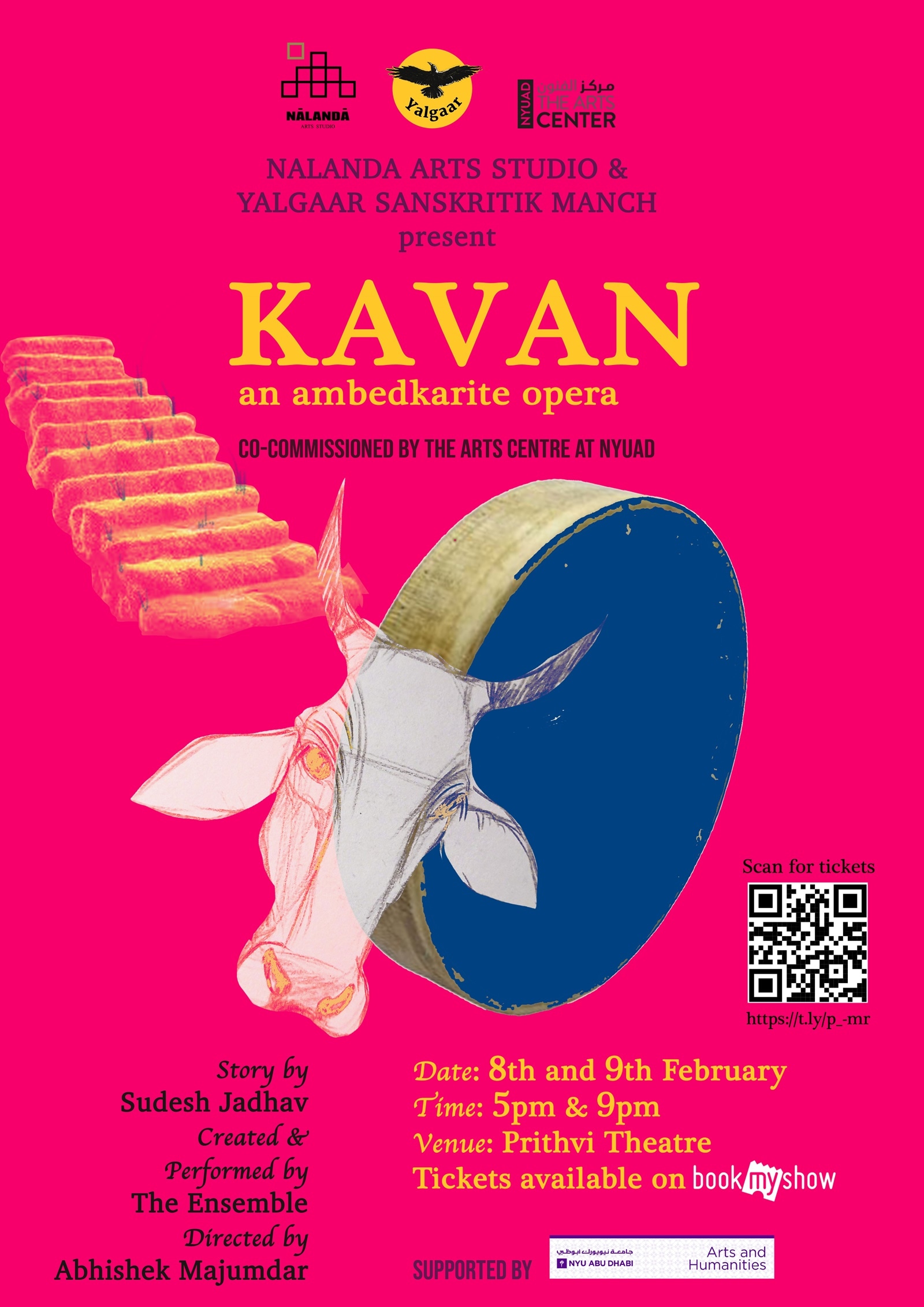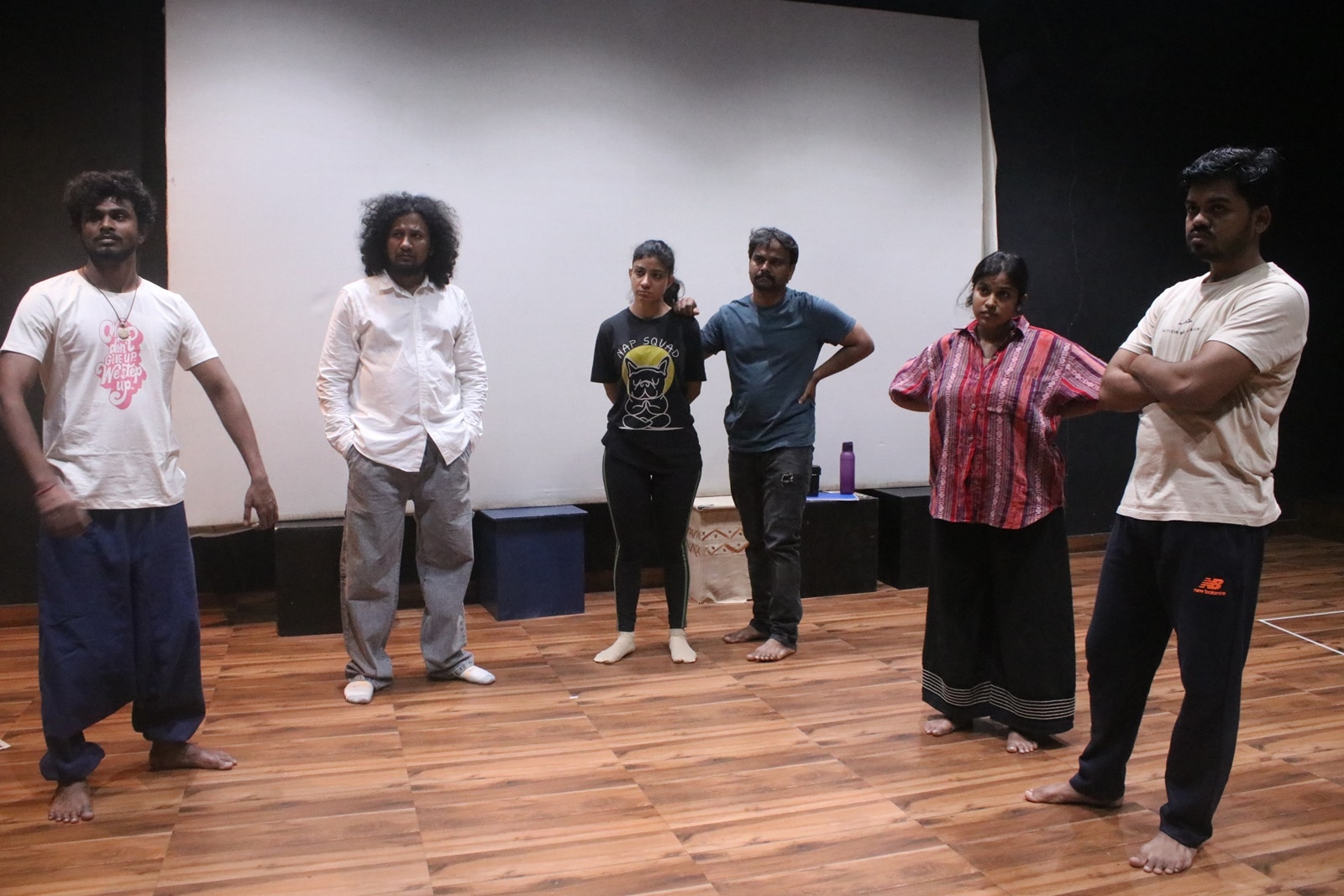The first time Bengaluru-based playwright-theatre director Abhishek Majumdar wrote about his new collaborative project with Yalgaar Sanskrutik Manch, an anti-caste street performance group from Mumbai, he subtitled it “A Dalit Opera”. Dhammrakshit Randive, coordinator and an artiste of Yalgaar, sent him a text saying, “Can you not call it a Dalit opera and call it an Ambedkarite opera?” “That was the first instance I realised how most of us get simple things wrong,” says Majumdar.
Many of today’s generation of Ambedkarite workers, such as Yalgaar, do not call themselves Dalit groups as they have members from other castes. “The word ‘Ambedkarite’ encapsulates an entire legacy of Babasaheb Ambedkar. As has been said in the social organisation Dalit Panthers, ‘Har koi shoshit, har koi vanchit’. The oppressed include women, labourers and religious and gender minorities. The Ambedkarite vision makes everybody a part, irrespective of class, caste, religion, gender and location,” says Randive.
 Kavan Poster (Source: Yalgaar Sanskrutik Manch)
Kavan Poster (Source: Yalgaar Sanskrutik Manch)
Yalgaar, which started working in 2014-15, takes cultural resistance to different people with the political belief that they will not echo in the same audience group. They talk about justice and struggles among the exploited, but also go to the “exploiters”. “Many people don’t even know that they are following caste hierarchies by mistake,” says Randive.
It has taken six months of “sorting out a lot of things between us” for Majumdar and Yalgaar to create Kavan, an opera that will premiere at Prithvi Theatre in Mumbai on February 8 and 9. Worldwide, every tradition of opera, from the Western to the Chinese to the Tibetan, has a specific form, and Kavan is grounded in the sahiri jalsa, a type of political cabaret made up of songs written by sahirs or political poets. Kavan is the Marathi word for poetry.
Randive, whose father was a sahir, says that the sahiri tradition rose during Ambedkar’s time when poets conveyed Babasaheb’s speeches and works, such as the Poona Pact, a 1932 agreement signed between Mahatma Gandhi and Ambedkar, and the writing the Constitution, to people, who couldn’t read. “When I was younger, I would hear sahirs who would present Babasaheb’s history and struggles in a single song,” says Randive. A jalsa could have songs of poets like Kabir and Ravidas or of revolutionaries, but they talk of Constitutional rights, expansive identities and equality.
The story of Kavan, written by Yalgaar’s Sudesh Jadhav, revolves around a young man, Bejul, who does not want to be a sahir. “This is also an interesting part of the movement because everybody doesn’t automatically think that they should have something to say about inequality or caste even within Ambedkarite families,” says Majumdar. Bejul’s father, a sahir was killed in a police station, and he, now, tends to avoid sahiri. But, Bejul owns a cow – at a time when the animal is seen as a symbol of religious and national pride and the gau rakshak activism is bristling across India. Bejul’s life, set against the songs written by Yalgaar and composed by Yalgaar and Bengaluru-based Pallavi MD, forms the core of the operatic satire. In the Ambedkarite tradition, the story looks at the issues through the lenses of caste and modernity.
 The ensemble members of Yalgaar (Source: Yalgaar Sanskrutik Manch)
The ensemble members of Yalgaar (Source: Yalgaar Sanskrutik Manch)
Conflict has shaped the theatre of Majumdar, one of India’s leading theatre makers. He travelled to Kashmir for Rizwaan, Gasha and Djinns of Eidgah, to the homes to former LTTE women exiles in London for Afterlife of Birds, to Tibet for Pah-La and to various layers of the Indian imagination for Kaumudi, Muktidham, Salt and Des. During the making of Kavan, Majumdar’s group of artistes, such as Irawati Karnik and Pallavi MD, and the Yalgaar team of eight often discussed India’s present political realities. “We are seeing a rise in Brahmanical fascism and capitalistic fascism. People are exhausted making ends meet and, on top of that, dharm ka nasha is being piled on them. This is causing an increase in violence, particularly on the oppressed sections,” says Randive.
Story continues below this ad
Kavan was a new experience for Yalgaar and Majumdar – and there was only one way they could see it through. Making the opera was an exercise in testing democracy within the creative space. “Yalgaar knows much more about their world than I do and that is a comfortable position for me. I am comfortable with the idea that whoever I am collaborating with is a master of the subject,” says Majumdar, who first realised the extent of class barriers as a student of Rural Development in Odisha 20 years ago.
Unlike many performers, who follow the director’s instructions to the letter, the artistes in Kavan expressed their opinions in detail. “We spent a lot of time developing a relationship of friendship with one another. We have a slogan of ‘Dosti Zindabad’. Friendship is essential to carry society through differences. It is easy to use the word democracy, but far more difficult to implement it. It was through dialogue that we understood one another for the opera,” says Randive.

